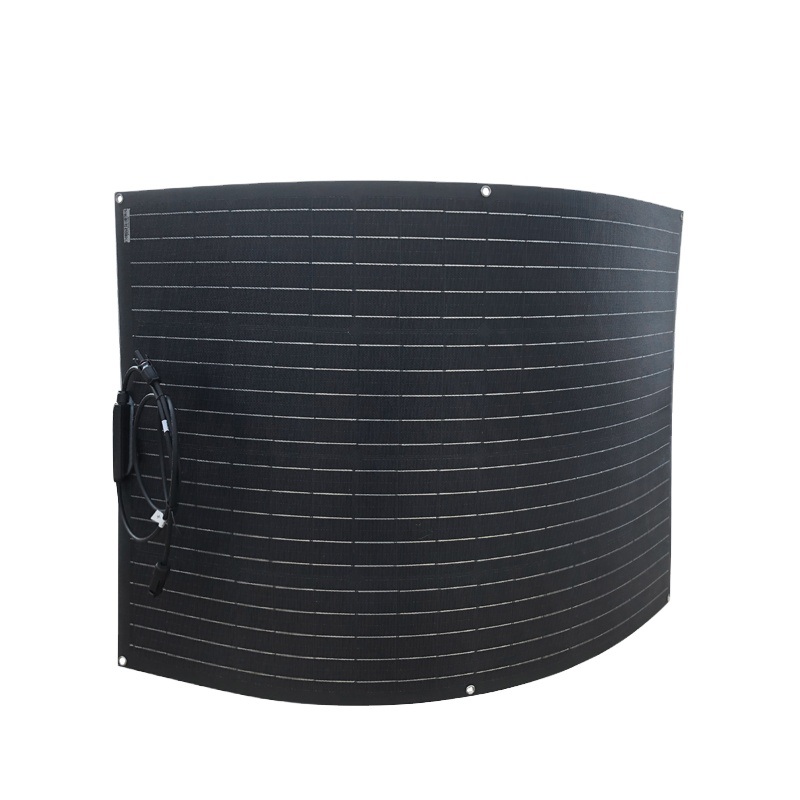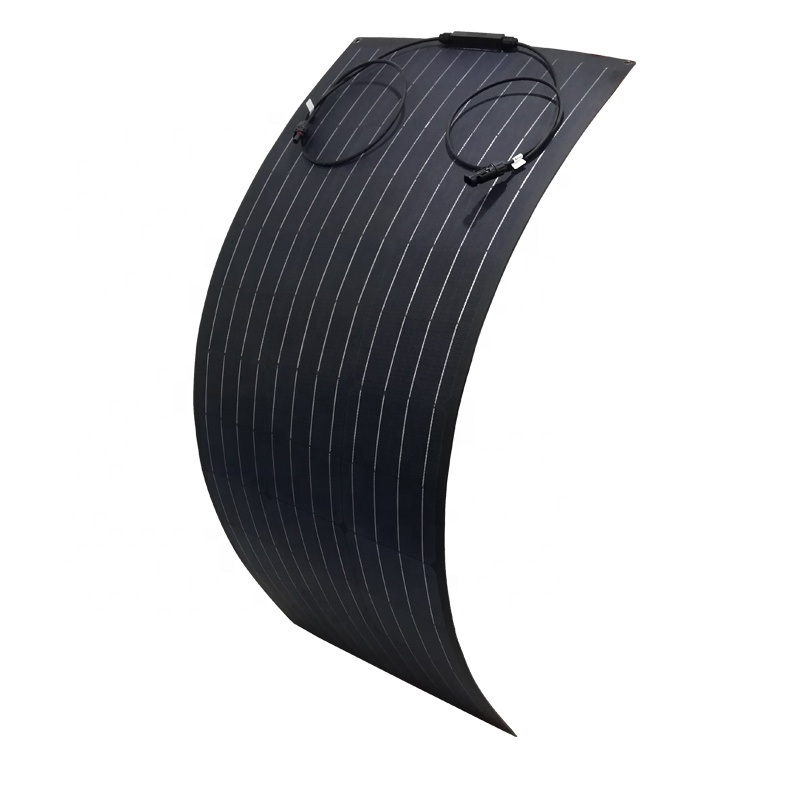Flexible Solar Panel
A flexible solar panel, also known as a flexible solar module or flexible solar panel, is a type of solar panel that is designed to be bendable and conform to curved surfaces. Unlike traditional rigid solar panels, flexible solar panels are made using lightweight and flexible materials, allowing for......
Send Inquiry
Product Description
A flexible solar panel, also known as a flexible solar module or flexible solar panel, is a type of solar panel that is designed to be bendable and conform to curved surfaces. Unlike traditional rigid solar panels, flexible solar panels are made using lightweight and flexible materials, allowing for greater versatility in installation options and applications.
Here are some key features and considerations regarding flexible solar panels:
1. Flexibility and Bendability: Flexible solar panels are made using thin and flexible materials, such as thin-film solar cells or crystalline silicon cells mounted on a flexible backing material. This allows the panels to bend and conform to different surfaces, including curved or irregular ones. The flexibility enables a wider range of installation possibilities compared to rigid solar panels.
2. Lightweight and Portable: Flexible solar panels are typically lightweight and portable, making them ideal for applications where weight and portability are important, such as camping, backpacking, boating, or other mobile setups. The lightweight nature of flexible panels also makes them easier to handle and install.
3. Installation Versatility: Due to their flexibility, flexible solar panels can be installed in various ways. They can be mounted on curved surfaces, attached to uneven or non-flat surfaces, or even integrated into the design of structures or vehicles. The flexibility allows for more creative and customized installation options.
4. Durability and Weather Resistance: Flexible solar panels are designed to be durable and weather-resistant. They are often made with materials that can withstand outdoor conditions, including moisture, temperature variations, and UV exposure. Look for panels with appropriate ratings for waterproofing and durability to ensure long-lasting performance.
5. Power Output and Efficiency: The power output and efficiency of flexible solar panels may vary depending on the specific technology used and the size of the panel. While flexible panels generally have lower efficiency compared to rigid panels, advancements in technology have improved their performance over the years. Consider the power output and efficiency of the flexible panels in relation to your specific energy needs and available installation space.
6. Application Flexibility: Flexible solar panels can be used in a wide range of applications, including off-grid power systems, solar charging for RVs and boats, portable power solutions, backpacking or camping setups, and even integration into building materials or architectural designs.
It's important to note that flexible solar panels may have different installation requirements and considerations compared to rigid panels. They may require special mounting methods, adhesives, or flexible-specific installation accessories. Always follow the manufacturer's guidelines and recommendations for proper installation and maintenance.
Overall, flexible solar panels offer greater flexibility and versatility in terms of installation options and applications. They are particularly useful in scenarios where traditional rigid solar panels are not suitable or practical. When choosing flexible solar panels, consider your specific requirements, available installation space, power needs, and the durability of the panels.










